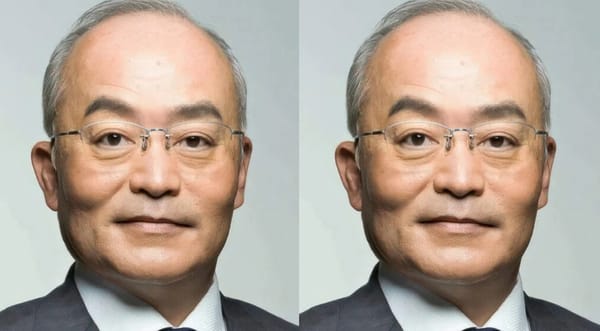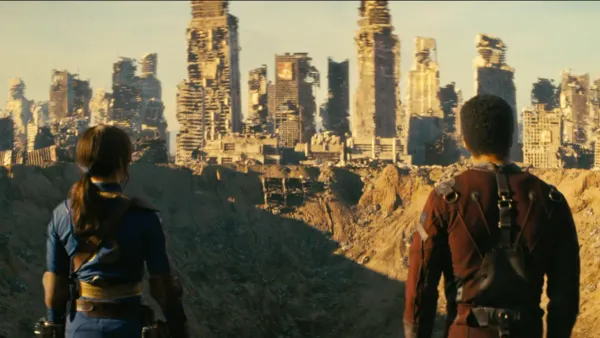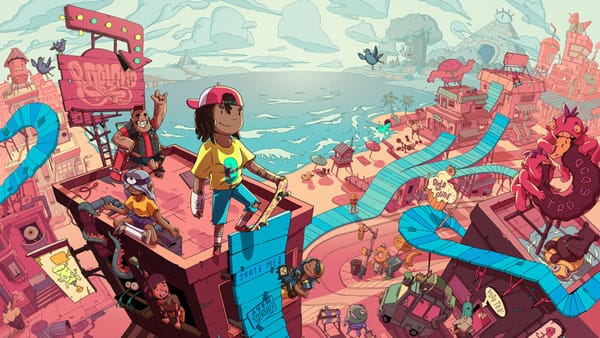#261: Dishonoured
Microsoft takes the industry's layoff mania to a new, unfathomable low.

Welcome to Hit Points, a newsletter that used to be about the game industry, but these days is almost entirely about layoffs and studio closures, because apparently that’s all the game industry is anymore. If you're not already signed up, you can do so here.
It has happened again, I am afraid, and this one might just be the worst yet.
Yesterday Microsoft abruptly announced the closure of four Bethesda game studios. Tango Gameworks, founded by the legendary Shinji Mikami, developer of The Evil Within, Ghostwire Tokyo and last year’s sumptuous rhythm-action brawler Hi-Fi Rush, is gone. Arkane Austin, maker of Dishonored, Prey and last year’s ill-fated live-service-thing Redfall, and home to one of the greatest living game designers in Harvey Smith, is dead. Alpha Dog, the studio behind app-store clone-job Mighty Doom, is gone too, while Roundhouse Games, formed from the ashes of Human Head and a support studio on a number of recent Bethesda games, is being closed and its team folded into ZeniMax Online Studios. The rest, it appears, are out on their arses.
In a screamingly awful email to staff announcing the news, Xbox Studios boss-goon Matt Booty says the closures “are grounded in prioritising high-impact titles and further investing in Bethesda’s portfolio of blockbuster games and beloved worlds which you have nurtured over many decades. To double down on these franchises and invest to build new ones requires us to look across the business to identify the opportunities that are best positioned for success.” Lots to unpack there, but I have very recently decided to ignore Matt Booty and everything that comes out of his stupid mouth, so let’s not.
If you are reading this you are, I think it safe to assume, a smart, insightful, attractive and pleasantly fragrant person. As such I am sure that you, too, know how it feels to sit in a work meeting, across the table from someone far more senior than you, and think to yourself: my god, this person is an absolute idiot. We’ve all had that feeling, right? I always thought those people had a professional ceiling, a limit on how high up the ladder they could climb — though on reflection I’m not sure why; the CEO of my former employer pronounced the word ‘strategy’ like it had four Ds in it — but I think the Xbox leadership team proves that wrong once and for all. I have often, while considering the widespread mismanagement that lies at the root of the game industry’s recent woes, wondered whether those at the top of the Ubisofts and Unitys, the Embracers and the Sonys and so on, were evil or just incompetent. Finally we have our answer. What a bunch of absolute clowns.
It is hard to make sense of this rotten mess, and a miserable exercise to even try. Regrettably that is the reason for Hit Points’ existence so I suppose we’ll give it a crack. In the old days there would have been pretext for closing these studios if, say, Hi-Fi Rush had sold poorly, and Redfall had flopped. But the whole point, as we all understood it at least, of Microsoft’s acquisition spree was to use the financial safety net of one of the biggest companies in the world to reduce, if not outright eliminate, the commercial imperative that traditionally burdens new game releases. To build a studio network of industry-leading heft and breadth, liberated from the game biz’s traditional rhythms, to power a paradigm-shifting subscription service. To enable good teams to make good shit to make Game Pass absolutely unmissable. We could debate til sundown why that hasn’t happened; we could blame the pandemic (sure, to a point), or Gen Z behaviour models (no), or rank mismanagement by a platform-holder leadership team that appears to have never really had a firm grip on any of these teams or the things they’ve been making (yyyyyyyep). But that was certainly the plan, right? There was definitely, I’m pretty sure, nothing in there about closing those studios down.
So: how did we get here? This cannot be ascribed merely to capitalism, to the growth-at-all-costs rot economy on which the majority of recent game-industry layoffs have rightly been blamed. These studios are tiny relative to an organisation of Microsoft’s bulk. They do not even qualify as a rounding error at a company that, in the first three months of this year, made almost $30m an hour in revenue. This cannot even be counted as virtue signalling to the Wall Street set, because it is simply not meaningful enough. You’ve got to lay off in the five figures to turn heads these days; only cruelty on the grandest of scales is enough to move the needle, and of course Microsoft, and the Xbox division, have already done that this year.
I can, as such, only see this as a fundamental shift in strategy, or ‘draddidgy’, as my old CEO would have it. The fairly obvious message here is that Microsoft is no longer interested in what I suppose we can call ‘gamer games’ — the Hi-Fi Rushes, Dishonoreds and so on, the critical-catnip titles with their bustling fanart communities, their busy subreddits and full-to-bursting trophy cabinets. As I explained to paid subscribers last week when discussing Take-Two’s miserable closure of Roll7, Intercept Games and Private Division, it is all a question of size — and more specifically, of how big-ticket acquisitions fundamentally transform the purchaser, and rarely do so for the better. The merger with Activision Blizzard, and the myriad concessions Microsoft made to antitrust regulators to get the deal approved, have changed the Xbox business to such an extent that it must now almost make as much money on other platforms as it does on its own — Xbox revenue is up 60% since the Activision deal completed — and it doesn’t need to develop costly hardware, and sell it at a loss, to make that sweet multiplatform cash.
With Activision under its wing, Microsoft is no longer the company of Game Pass, focused squarely on stuffing an industry-leading subscription service with a steady flow of must-play games. Not that it ever really was that, of course, but that was always the idea. Well, no longer. It is now the company of Call Of Duty on PlayStation, of World Of Warcraft on PC, of Candy Crush on phones and Minecraft on everything. Microsoft CEO Satya Nadella said during the antitrust hearings that he didn’t like the way the videogame business was built on platform exclusives. On a recent investor call Nadella made hay about Xbox being the biggest publisher on PlayStation. No doubt he has, however belatedly, reached the same realisation at which Hit Points and a handful of others arrived long ago. The Game Pass dream is dead. Perhaps the Xbox one is too. Now, for these four studios and the others that will inevitably follow, the nightmare must begin.
So, sure, I suppose I can understand it, if nothing else. But once again — and apologies for writing this phrase so often — what a wanton act of self-harm this is. It further damages an already terribly wounded brand, further alienates an army of fans that were already reaching for their white flags. It will have a terrible chilling effect on the rest of the Xbox studio group; the teams at Ninja Theory should be pumped about finally getting Hellblade II out the door, but will instead spend the next few months jumping out of their skin at every new email notification. The talented, hardworking folks at Double Fine, Obsidian, Playground and all the rest will be looking to take their talents elsewhere, and no doubt working a little less hard while they search. Could you blame them? You are hardly going to sprint to the finish line when you can see the fire raging behind it, and the axeman leering ominously at you down the track.
With Hi-Fi Rush, the team at Tango Gameworks did everything right. They made a very good game, in a genre and an aesthetic that people do not readily associate with Xbox. It reviewed wonderfully, was received warmly by players, was a fixture in games-media end-of-year lists, won a GDC Award and took home a Bafta. It was one of a vanishingly small number of games to have given Game Pass what it needs to succeed. Its makers should be lionised; instead they have been Lionheaded. For Microsoft to admit it does not see a future role in the Xbox operation for a studio like Tango, and a game like Hi-Fi Rush, is ominous indeed, and staggeringly depressing for those of us who are in this thing for the games, rather than the money.
So, where do we go from here? What we need from Microsoft now is honesty, clarity, and — and I realise the outlandishness of even writing this, let alone expecting it — a willingness to do the right thing. I am afraid we are past the point of Phil Spencer doing another faux-candid mea-culpa on a podcast staffed by soft touches; we are even further past him being able to open next month’s not-E3 Xbox broadcast with a vague, platitudinous passage about ‘tough times’ and ‘difficult decisions’. There can be no repeat of the rigorously scripted tip-toeing around the issues that Spencer and co offered after word broke of Xbox exclusives going multiplatform. We all — developers, players, press, newsletter idiots, hell, even shareholders — need to know exactly where we stand; what Xbox actually is in 2024, where it is headed and what it intends to do when it gets there.
And if, as seems abundantly clear, further cutbacks are on the horizon, do the decent thing and let those teams go. Offer them their independence and their IP for pennies on the dollar. Let them keep their talented teams together and head out for different pastures that, while certainly threatening right now, are a good deal greener and less terrifying than the one they’re in today. Do all of this and then go away, please. Do your Candy Crush thing, crowbar your AI nonsense into every crevice of your business, and leave us in peace. This is cultural vandalism with a dreadful human cost, and I am absolutely fucking sick of it.
Yo, £4 a month gets you something like this in your inbox — along with a round-up of the week’s news and some other bits and bobs — every Friday, and makes me feel slightly less disgusted about having to write endless versions of the same thing because this industry fucking sucks. (We do have fun when we can, I promise.)





